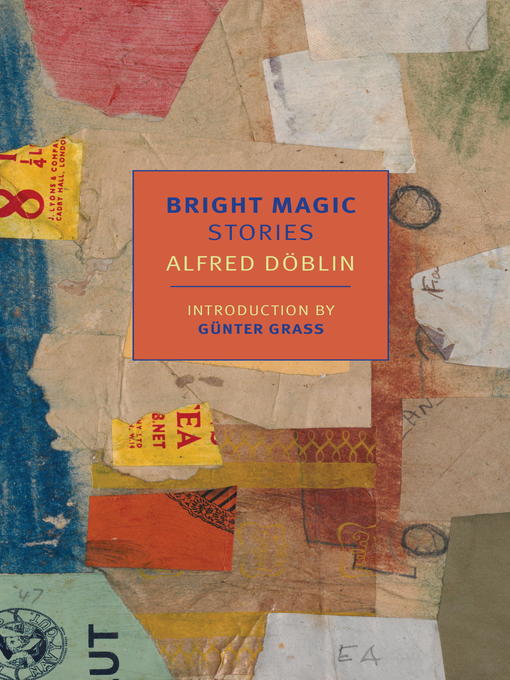
Bright Magic
Stories
کتاب های مرتبط
- اطلاعات
- نقد و بررسی
- دیدگاه کاربران
نقد و بررسی

June 6, 2016
Searls is nearly as prolific a translator as Döblin (Berlin Alexanderplatz) was a writer, so it’s natural that he should give us the first English-language edition of Döblin’s short stories in Bright Magic. The first of the book’s two sections groups together early tales that run the gamut of German romanticism: there are secret societies (“Astralia”), tortured ballerinas (“The Ballerina and the Body”), an immortal witch (“She Who Helped”), medieval fairy tales (“Bluebeard the Knight”), and more than one intersection of love and suicide. Standouts such as “The Murder of a Buttercup,” in which a miser becomes tortured by guilt after decapitating a flower, and “A Blasé Man’s Memoirs,” in which a young intellectual attempts to be done with love, hint at the psychological depth and abiding strangeness to come in the book’s latter half. In the second section, we have a handful of gnomic fables and two genuine masterpieces: “Traffic with the Beyond,” in which a circle of spiritualists tries to solve a murder and wind up channeling much more than they bargained for, and “Materialism: A Fable,” in which all the world’s flora and fauna fall into a deep depression at the new primacy of mankind. When a tiger tells an assembly of animals, “We have to bring reason into the world,” or when we read, in “Max,” of the friendship of a girl and a hippopotamus, the reader is aware of the extent of Döblin’s imagination. Bright Magic is the work of a sorcerer, an indispensable translation welcome in any cabinet of wonders.

Starred review from June 1, 2016
Essential anthology of short works by the master of German literary expressionism.Berlin Alexanderplatz, the sprawling saga for which Doblin is best known, is long in the telling but without much narrative trickery. The stories gathered here, including the whole of his 1912 debut book, The Murder of a Buttercup, are another matter; many seemingly seek to defy all expectation. The opening story begins with realistic resolution: a Brazilian man finds his way to a Belgian beach and there takes an interest in a woman with rust-colored hair. A gloominess has settled over the story from the outset, with the suggestion that Doblin is working toward a rejoinder to Death in Venice, but if he is, in the end it is by way of Ovid as man and woman sink beneath the waves of the North Sea: "And as they touched the wet waves together, his face turned young; her face turned young and youthful." Wet waves? Young and youthful? Never mind, for Doblin is off to another fantastic vignette reminiscent not, in the end, of Thomas Mann but instead of Jorge Luis Borges or perhaps Stanislaw Lem. Some of the metamorphoses are literal, some figurative, but which is which is not always clear: does Mary really turn "into a ripe blossom" (and are blossoms ripe, strictly speaking?) when, sitting alongside Joseph, she says to her blessed son, "I love you, I love you, you pledge from God"? That story, "The Immaculate Conception," exemplifies Doblin's quiet interest in religious experience, though it is more cheerful, all in all, than most of the stories, which, if quirky and sometimes oddly funny (cow's cheese, anyone?), end up with the demise of someone or another: "Even in death, the ballerina still had a cold contemptuous look around her mouth." "Then Death stood up and pulled the canoness by her cold little hands behind him, out through the window." The humor is dark. So is the general outlook. Still, Doblin's stories are uplifting in their elegance and beauty.
COPYRIGHT(2016) Kirkus Reviews, ALL RIGHTS RESERVED.

























دیدگاه کاربران